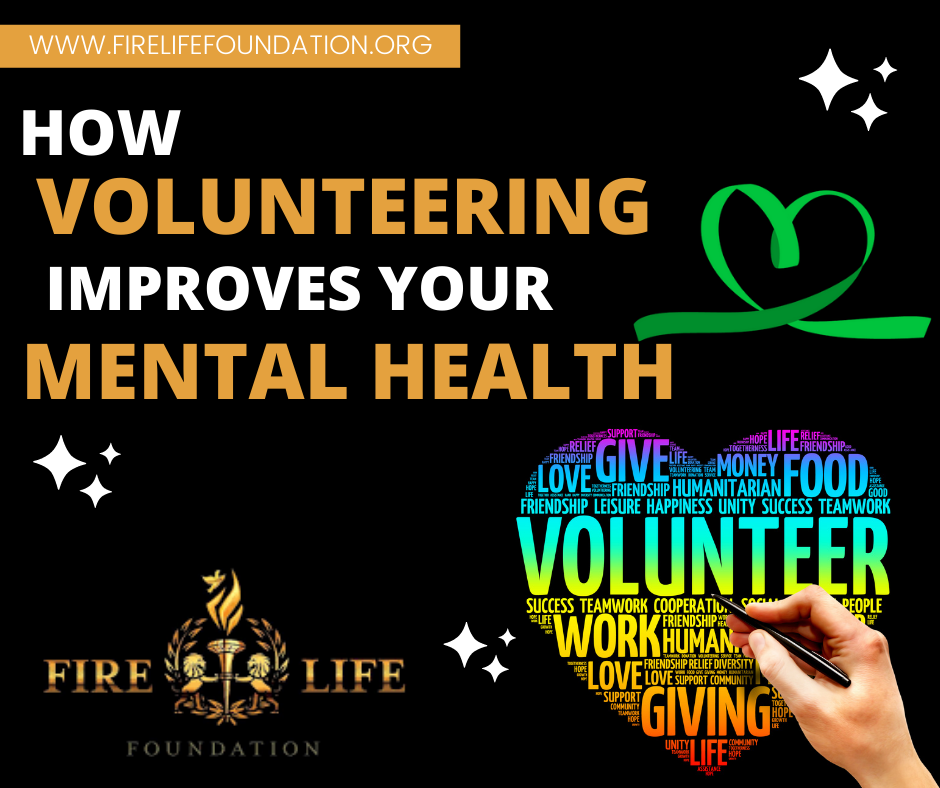“Volunteers make an immeasurable difference in people’s lives and often serve with the intention of helping others.”
Can you put a price on a good deed?
Mind & Body’s interesting article shares how one study showed that volunteering was essentially “worth” approximately $1,100.
Researchers examined data from research participants in the Journal of Happiness Studies published last 2020 about their volunteering habits and their mental health, including their distress and functioning in everyday life.
Researchers compared volunteering to the effects on people’s income to get a sense of how large the benefits were, and found that volunteering would make someone as happy as having an extra $1,100.
Make a difference, even at a distance.
Greater Good shares that at a time when more than a third of Americans are experiencing symptoms of anxiety and depression, volunteering makes a difference not only to the communities they serve but a difference in their own lives in terms of improvement in physical and mental health.
The pandemic created feelings of isolation and stress, impacting mostly adolescents, the elderly, working parents, and people who have lost their sources of income.
It has caused immense stress and isolation in many of us. Some groups have been hit particularly hard, including the elderly, parents juggling work and child care, and people who have lost their jobs.
New research suggests that volunteers aren’t just helping the communities they serve. People who volunteer actually experience a boost in their mental health—good news at a time when more than a third of Americans are experiencing symptoms of anxiety or depression.
Mayo Clinic Health System shares that a Longitudinal Study of Aging found that individuals who volunteer have lower mortality rates than those who do not, even when controlling for age, gender, and physical health.
Research also has shown that volunteering leads to lower rates of depression and anxiety. Volunteers reported reduced stress and an increase in positive, relaxed feelings. By spending time in service to others, most can agree how it creates a sense of meaning and appreciation, both given and received, which can have a stress-reducing effect.
Become happier over time.
Volunteer activities keep people moving and thinking at the same time.
A published research paper featured in Springer answers a curious question, “Does Volunteering Make Us Happier, or Are Happier People More Likely to Volunteer?”
Research suggests the same results with participants’ initial levels of well-being before they started volunteering accounted for. In other words, people who started to volunteer became happier over time.
Additional research suggests that people who start out with lower levels of well-being may even get a bigger boost from volunteering, experiencing more satisfaction with their lives and overall health.
We learn about the term, "Helper's high" from WebMD. It describes the feeling people have after volunteering - a prolonged calmness, a reduction in stress, and a greater sense of self-worth after doing something kind for someone else.
Help Guide acknowledges that human beings are hard-wired to give to others - the more we give, the happier we feel. Research studies suggest that being helpful to others delivers immense pleasure upon measuring hormones and brain activity.
Volunteering can have a profound effect on one’s overall psychological well-being. Nothing relieves stress better than a meaningful connection to another person. Working with pets and other animals has also been shown to improve mood and reduce stress and anxiety.
Take action.
Find new meaning and direction in your life by helping others.
Volunteering can help take your mind off your own worries, keep you mentally stimulated, and add more zest to your life.
Trish Lockard published an article on National Alliance on Mental Health (NAMI) where she shares how her long-time friend, psychologist Terri L. Lyon, hoped to create an easy-to-follow roadmap for people to identify the cause they are most passionate about and determine how to use the gifts they already possess to make a difference for that cause.
Below is the 5-Step Activism Path from her book, “What’s On Your Sign?”.
Find your passion by creating a vision of how you want to change the world
Identify the unique gifts you can bring to this activism
Craft a unique activism opportunity ideally suited to you
Monitor your long-term effectiveness
Stay motivated and avoid burnout
Are you interested in becoming a volunteer? There is a wide variety of volunteer opportunities in every community, whether you are interested in youth, environmental, health, religious, or community causes. Check with local nonprofit and cultural organizations, schools, faith communities, or hospitals for options.
Firelife Foundation supports many different programs for at-risk youth and those going through challenging situations. We produce campaigns for the prevention of suicide, bullying, and substance abuse, primarily among teens in underprivileged areas. Our live inspirational events that combine celebrity performers and inspirational speakers have reached thousands with a message of hope.
If you are interested in becoming a volunteer or a mentor please contact us! There's no better way to make an impact than to become an active advocate yourself. Join now and make an impact!
We can accomplish a lot of things, together.

